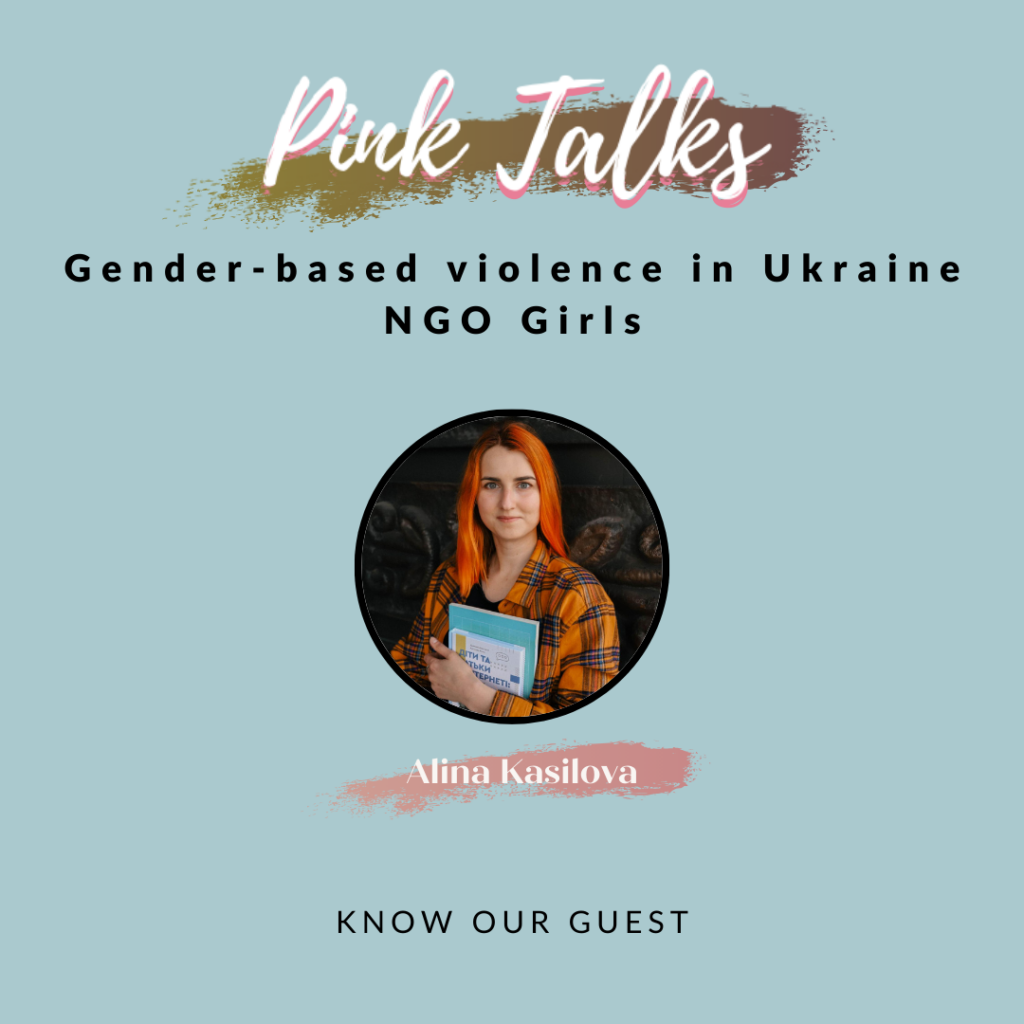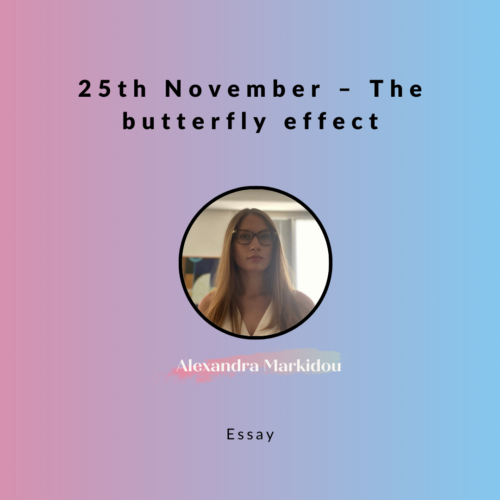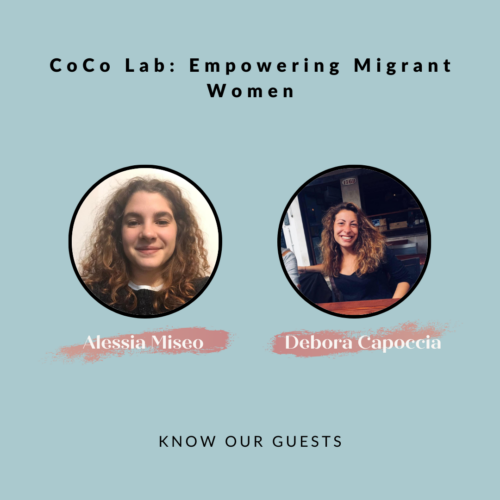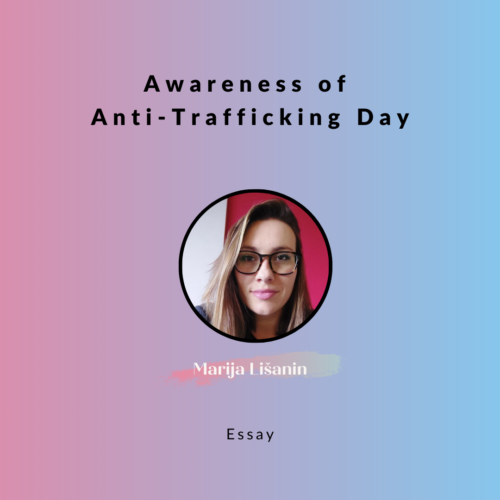One in five women in Ukraine faces gender-based violence, but the reports are still low because of stigma. With the political, economic, and social changes that the 2022 war causes, new layers of conflict are added to or intensify the violence against women and girls. In this context, the quick mobilisation of NGO Girls was detrimental to supporting the affected teenagers, women and men, children and families. They provided psychological assistance and therapy for survivors of violence, arranged temporary shelters and delivered targeted financial aid.
This Pink Talks episode sheds light on NGO Girls, an organisation from Ukraine whose mission is education on female and male physiology and hygiene for both students and teachers. Today, we uncovered different types of domestic violence, stigma, institutional responses, and solutions with our guest, Alina Kasilova. She is a clinical psychologist, trainer, and expert in human rights protection who shared with us the experience of working in the field and cooperating with the officials.
War affects all genders
The impact of war is different, with men being sent to the frontline and women assuming full economic responsibility for their families. This dynamic can reinforce domestic gender-based violence. The prevalent cases of violence that ask for support are based on psychological and economic violence. In their day-to-day assistance, Alina noticed a shift from the sexual abuse requiring more attention in former years to the need to address family emotional abuse. When parents transfer their emotions to children, the latter experience a spectrum of feelings they have no control or understanding of. It’s a ping-pong exchange and mutual confusion that leads parents to look for help. Often, the positive impact on children opens the way for parents who themselves sign up for psychological assistance.
Despite their name, the work of NGO Girls also targets men and families at large. Moreover, their team includes men who participate in projects and activities around GBV, war, sexual abuse, and sexual education.
Is violence still stigmatised in Ukraine?
In the Ukrainian context, Alina makes a distinction between rural and urban attitudes towards public conversation and recognition of violence. With multiple projects and accessible information, urban inhabitants don’t see a problem with making the GBV stories visible. Meanwhile, the rural settings stamp a stigma on domestic abuse and oppose the negative interpretation of their transgenerational family relations.
Notwithstanding, the role social media plays in empowering people to share their experiences remains valid. Their voices raise awareness of the need and benefits of psychological help. At the same time, digital social networks facilitate the paths to reaching therapists and experts. With social media stories and posts, people expose and are exposed in turn to diverse narratives highlighting it’s not normal to face abusive behaviours.
Reluctance to psychological aid comes from a lack of understanding and resistance to realities other than the inherited violent model. Another reason is the assumption that police or psychologists cannot relate to violent cases and therefore their support is of no use.
A change on both sides
NGO Girls encourages people to talk about violence by creating social spaces and podcasts. In her work, Alina compared the fear people showed in the past towards openly giving access to their stories to how they now embrace and own their freedom of speech. Public figures who revealed their experiences also contributed to changing the perception of violence disclosure. In addition, all social projects, psychological support, and NGOs working in the field play an important part with their contacts, helplines, informational materials, and legal and financial advice.
On the institutional side, NGO Girls organises training sessions for police on managing GBV reports. Even officials, social workers, and specialists have stereotypes they are more or less aware of. So, one of the first exercises in these discussions is acknowledging one’s own preconceived ideas, in order to improve the public bodies’ responses.
The training puts forward the problem of classifying and diminishing domestic violence to conflict, as well as the implications on children. It is a setting for understanding the feelings and stages of violence. For healthy and efficient police interventions, it is also important to consider the mental health of officers as they are daily faced with emotionally loaded situations.
A future of understanding
We believe in a future where sexual education becomes part of the curriculum and children learn very early about consent and boundaries. A future with open, free and safe conversations about feelings, emotional states, needs and their materialisations into actions adds up to a better society. Debunk the love-violence association and build healthy and happy relationships!
Show resources

Clinical psychologist, trainer, and expert in human rights protection, Alina Kasilova has worked in the field for the past nine years. She cooperates with the national police in combating violence and resolving family conflicts, and she is involved in conducting pre-trial interviews with minors and providing expert pre-trial decisions.
At the moment, Alina works as a psychologist and trainer in the prominent CSO (such as individual practice with clients, group sessions for supporting teams in different organisations and educational training about the prevention of GBV).
Alina obtained a Master’s degree in Clinical Psychology from the Vasyl Stefanyk Precarpathian National University.
You can find their project at https://divchata.org/en/projects/campaign-against-gbv.html
Learn about their mission to ensure women’s visibility, involvement, and equitable participation in Ukraine’s reconstruction at https://www.divchata.org/en/. Connect with them via email for partners and donors: dch@divchata.org, and for humanitarian aid: go@divchata.org
Your engagement and support are vital in their efforts for a more equitable world for women and girls!



